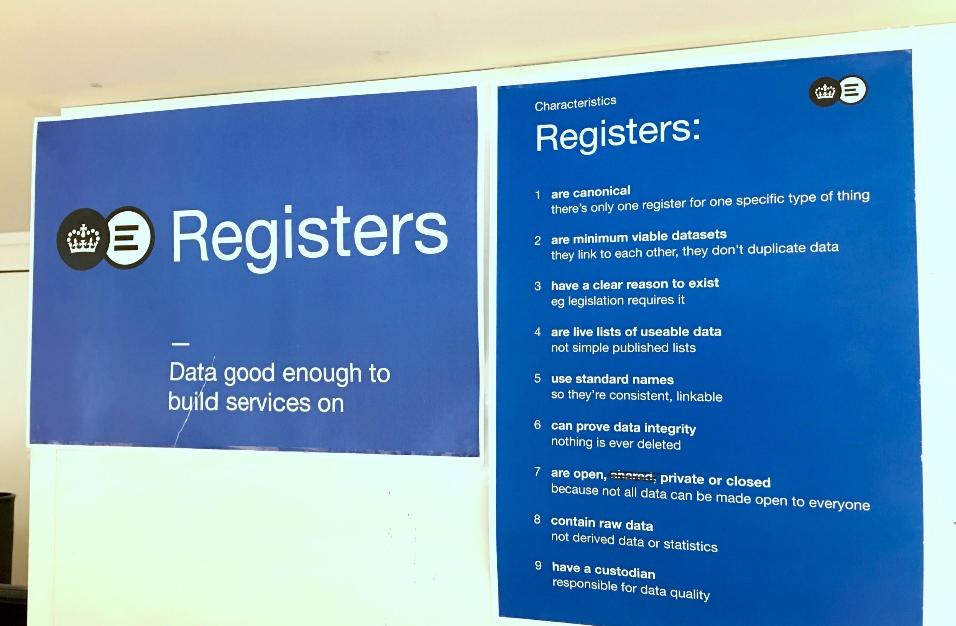
There is plenty of value in individual registers as authoritative sources of trustworthy core reference data - the first beta register, the country register, is being used by services such as the e-petition service already. Over time the country register will also replace many of the country lists published on GOV.UK. So individual registers are good but an ecosystem of linked registers is even better. That’s why every register needs to be designed with the wider ecosystem in mind.
The Register Design Authority
And that’s the focus of the Register Design Authority, which sits in the GDS data group - making sure that registers accurately and helpfully reflect the interconnectedness of government data.
This team has domain control for the register.gov.uk domain. It will work with the register custodians who are responsible for running registers and are the domain experts, to ensure that the data in their registers is modelled in ways that meet users’ needs, and work with other registers in the government data ecosystem.
This is how we will avoid unhelpful and confusing replication of data and ensure that registers really are trustworthy.
The process for determining which registers get built
There are a number of factors the Register Design Authority team considers when it comes to the creation of a register. These considerations have implications for the modelling of the data within registers and the way the registers are run. Only once these conditions have been met can the register begin operating on the register.gov.uk domain.
One of the things the Register Design Authority team thinks about is where a new register would sit within the linked ecosystem of registers. By definition, data in canonical registers isn’t replicated elsewhere. For example, we shouldn’t have more than one country register. Having a single register means establishing agreement and saves services having to decide which list to use. So given there’s already a country register, the register design authority won’t support the creation of another “nation” register on register.gov.uk, unless that proved to be a different concept.
Another thing the team looks at is whether the register data constitutes a ‘minimum viable dataset’ - one of the characteristics of registers. This isn’t just because it makes for cleaner, more modular structuring of data, but also because it makes it easier to align the operation of registers with the underlying processes for data collection and maintenance.
We want registers to work across government, and not just for a single service or organisation. That’s why the team needs to spend time working with the custodian and services, to ensure that the data in the register can be kept as accurate and as up to date as possible. Users need to be confident about these things and have the appropriate access tools, for the data held in registers to be considered good enough to build services.
When there is a conflict over which part of government should be the source of data for a register, the team looks at who can provide regular, accurate data, that allows for the ongoing feedback loops that are a characteristic of registers. If it’s still not obvious who is best placed to be run a register, we will escalate this decision to the Data Leaders Network for review.
Standards help build trust
One of the most important aspects of registers is that they provide data that’s good enough to build services on. We build trust in registers both by having clear technical specifications and clear processes for how and why they’re built. Registers are long-lived, so an important part of the specification is consideration of how the API and data can change over time without breaking services, and to enable feedback loops from services to ensure the data in a register is accurate, and kept up to date.
In an earlier blog post we were clear that building the foundation of the government’s data infrastructure is a work in progress, that is still the case. These standards will evolve, as good standards do, as more registers come online and we learn from custodians, data users and ongoing development of the Registers platform.
You provided us with helpful feedback following the beta release of the country register at SPRINT 16 and we’d like to hear your thoughts on the approach we’ve outlined here and the draft specifications we’ve linked to. We want this to be part of the way we transform government together and we’d like your help.
Join the conversation on Twitter, and don't forget to sign up for email alerts.